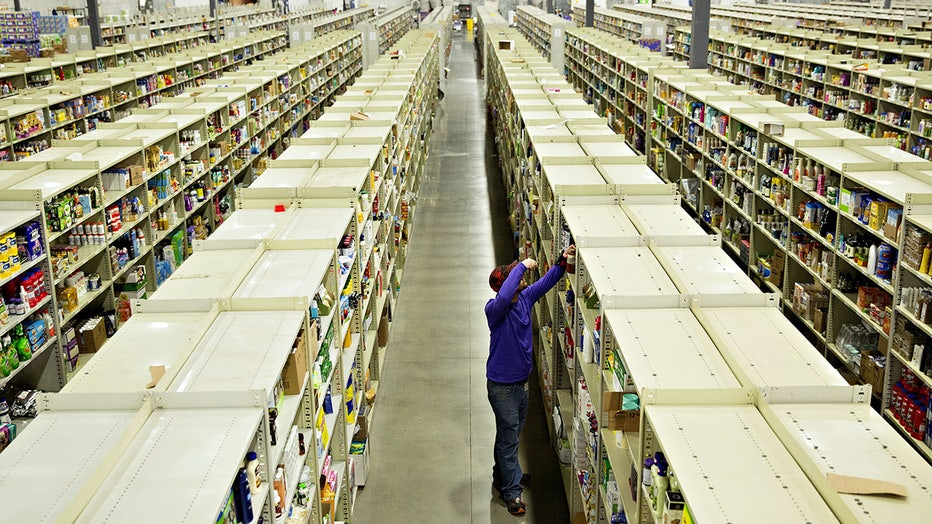The rise and fall of Black Friday
Full episode: How Black Friday lost its magic
Black Friday has always provided plenty of headlines, both good and bad. In this LiveNOW & Then special, we take a look at how crazy things got over the last few decades before the internet settled everyone down.
LOS ANGELES - Black Friday is one of America’s most polarizing "holidays." The day after Thanksgiving, to some, is a day to relax and spend time with family. But for others, it’s a chance to take advantage of sales from stores that are eager to kick-start the shopping season.
For almost 100 years, department stores have showcased their biggest displays on the day after Thanksgiving, hoping to draw crowds. Philadelphia police are credited with coining the phrase "Black Friday" out of their frustration at having to deal with the crowds in the 1960s. The term was later given an accounting slant – the day that retailers hoped to move from the red (loss) to black (profits).
RELATED: What to know about Black Friday's history and evolution
The 1980s saw the debut of the "must-have" hot toy of the season, such as the great Cabbage Patch Doll rush of 1983. And as consumer electronics became more popular, TVs and video games were in high demand. Before long, shoppers were camping out for the best doorbuster deals – right through Thanksgiving.
"These people would camp out a few hours in advance, then several hours in advance, then a day in advance and a couple of days in advance. I mean, the line kept on getting pushed and pushed and pushed," recalled Steve Noviello, a consumer reporter for FOX 4 in Dallas who has covered Black Friday for years.
In response, some stores began opening on Thanksgiving night, ready to accommodate the deal-hungry shoppers.
Black Friday turns deadly
Scenes of wild Black Friday crowds became the norm on local TV stations, with shoppers getting pushed and trampled in order to get to the few items that were on sale. For every hard-won cheap TV, there were dozens of shoppers who left empty-handed – or worse.
Things turned tragic in 2005 when a rookie employee at a Walmart on Long Island was killed amidst the Black Friday rush. Jdimytai Damour, 35, was trampled to death after only a week on the job.
Police at the time said about 2,000 people had gathered outside the Valley Stream store and shoved through when doors opened at 5 a.m., literally busting the door itself and trampling Damour as he tried to protect a pregnant woman from the chaos.
"This crowd was out of control," a police spokesman told FOX News.
From 2005: What we hate about Black Friday
From the dangerous doorbuster dash to clueless clerks, here's what New Yorkers said they hated about Black Friday and holiday shopping, according to this FOX 5 NY report. Originally aired November 28, 2005.
Black Friday loses its magic
Despite that tragedy, it was a few more years before Black Friday was ultimately changed, ironically, by the very items that many shoppers were coveting.
Noviello recalled the moment he realized Black Friday would never be the same.
"We showed up at Best Buy like we normally do. And it was after the advent of the smartphone, so this is post-2007 when the iPhone came out. So probably around 2010, maybe. We went down the line and we asked people what they wanted. And then we took out our cell phone and we found the exact same item on the Internet on Amazon for less money or a comparable price and said, ‘Oh, we just ordered the same thing and we didn't have to sleep here all night.’ And people thought, ‘What am I doing? I could get this stuff delivered to my house just as inexpensively and I don't have to fight anybody for it.’ And that was the beginning of the end."

File: An employee collects items for customer orders at the Jet.com Inc. fulfillment center on Cyber Monday in Kansas City, Kansas, U.S., on Monday, Nov. 30, 2015. (Daniel Acker/Bloomberg via Getty Images)
The future of Black Friday
In recent years, in part because of the COVID-19 pandemic, the shopping public has pushed back against the idea of forcing employees to work on Thanksgiving, and many stores plan to remain closed on the holiday.
But there’s no question that consumers are looking for holiday deals – whether in stores or online – and Noviello says that’s never going to change.
"As long as we can save money and tell everybody else about it, Black Friday is here to stay, he added, "even if it starts in August."

